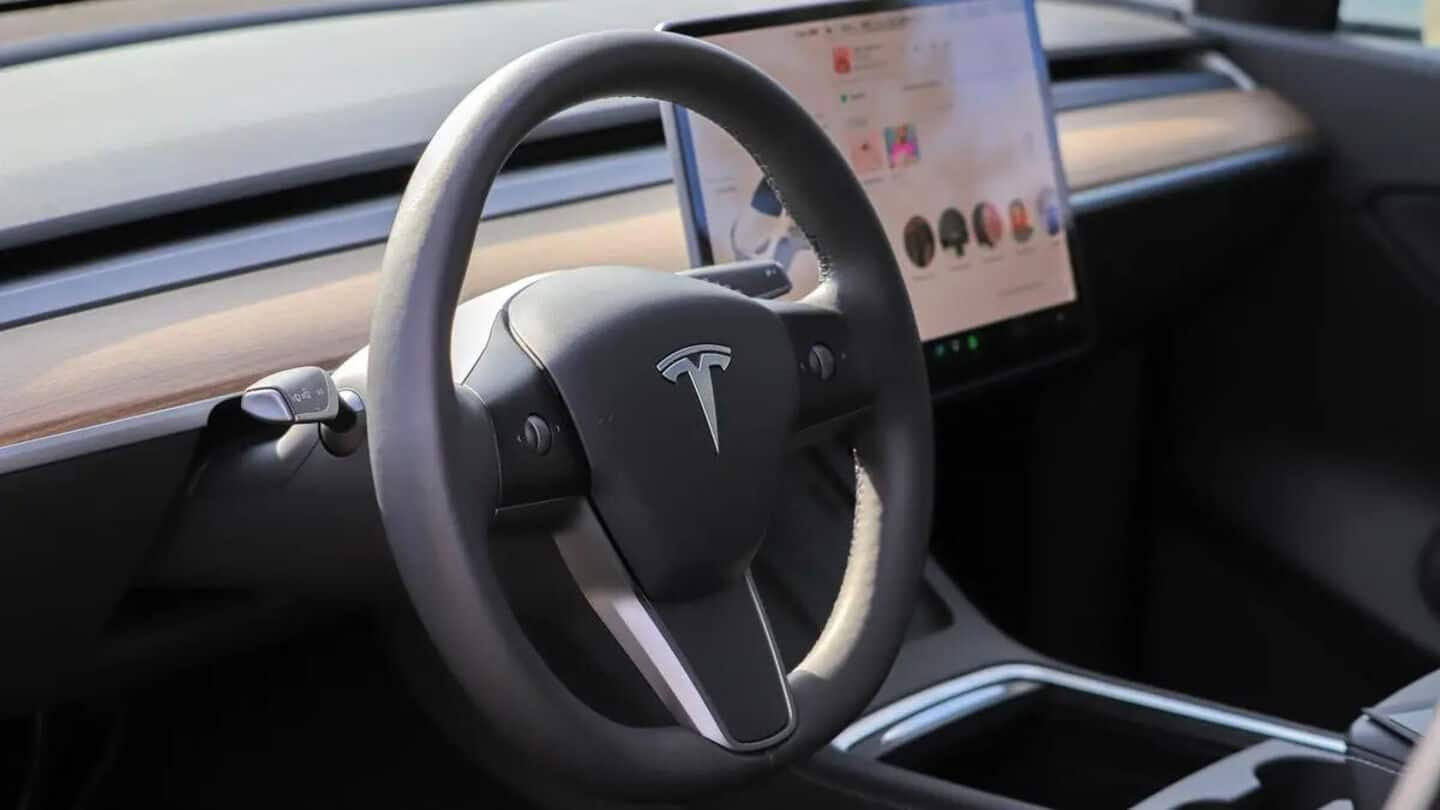Tesla accused of speeding up odometer readings to dodge warranties
What's the story
Tesla is staring at a proposed class action lawsuit, accusing the company of artificially accelerating the odometer readings on its electric vehicles (EVs).
The practice, according to the lawsuit, allows Tesla to get out of warranty obligations sooner than anticipated, saving on repair costs.
The lawsuit was filed by Nyree Hinton, who claims that the odometer readings on his 2020 Model Y were significantly higher than the actual mileage driven.
Claim details
Allegations of accelerated odometer readings
Hinton claims that the odometer readings on his Tesla Model Y were affected by energy consumption, driving habits, and "predictive algorithms," instead of real distance traveled.
He says that the odometer on his car, bought in December 2022, was at least 15% faster than other cars he owned.
This difference made him think he was driving more miles every day than he actually was.
Warranty impact
Lawsuit filed after warranty expiration
The inflated odometer readings led to Hinton's basic warranty of 50,000 miles (around 80,470km) expiring early. This left him with a $10,000 repair bill for suspension work that he thought Tesla should pay for.
The lawsuit states: "By tying warranty limits and lease mileage caps to inflated 'odometer' readings, Tesla increases repair revenue, reduces warranty obligations, and compels consumers to purchase extended warranties prematurely."
Legal proceedings
Tesla denies allegations, lawsuit moved to federal court
Tesla has denied all major allegations in the lawsuit but has not responded to requests for comment so far.
The lawsuit was moved from a state court in Los Angeles to a federal court this month.
Hinton is seeking both compensatory and punitive damages for Tesla drivers in California, which could impact over a million vehicles.
Previous cases
History with litigation
Notably, Tesla has faced litigation related to vehicle performance metrics, including accusations of inflating driving ranges.
Back in March 2024, a federal judge in Oakland, California, had ruled that drivers in a similar case must pursue their claims individually through arbitration and not as a class action lawsuit.
The current case against Tesla is Hinton v Tesla Inc et al, US District Court, Central District of California, No. 25-02877.
